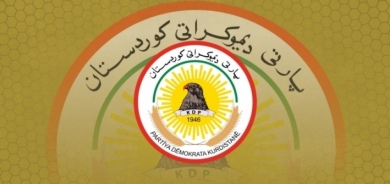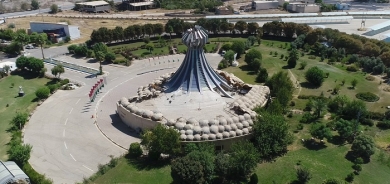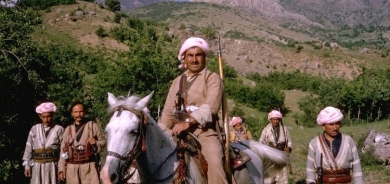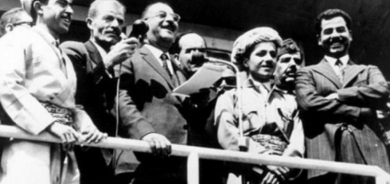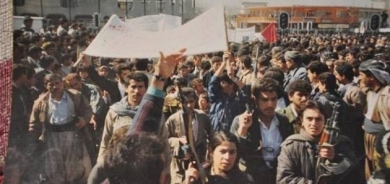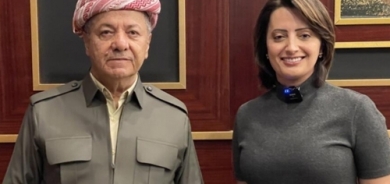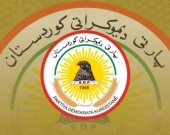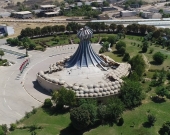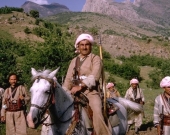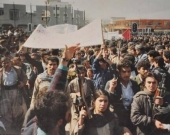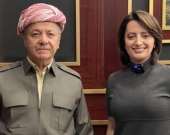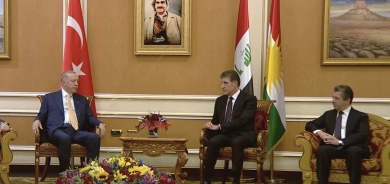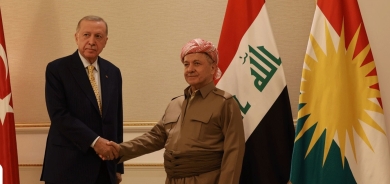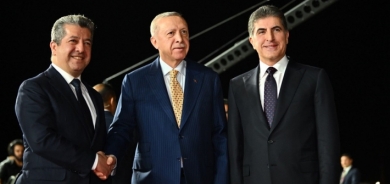Syria is approaching to an end, and eventually; the international community has to make a decision
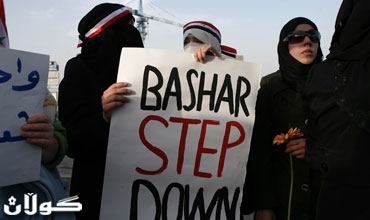
Regarding to the two expectations the international community is betting on, we contacted the professor Jeremy Pressman, an Associate Professor of Political Science, and Coordinator at the Middle Eastern Studies, the Professor Pressman believes that the international community studied too many solutions and they are not concerning only on two of them, he replied to our questions in an exclusive interview to Gulan Magazine as the following, saying: “I'm not sure that there is only two chooses; I think there is a lot of chooses. I think that what we are going to see is rather than the international community speaking with one voice, we are going to see what we have seen over the last few months; which is many countries being very upset by what is going on in Syria, in fact most countries in the world – as we saw with the United Nations’ General Assembly’s vote – most countries in the world rejected what the Assad regime is doing, and I think this will continue for a while until to see the minority countries that aren’t ready to sanction broad international action, but I don’t think that would means sort of wars, I think what we are going to see some countries continuing to do things like speaking out against what Assad’s regime is doing, countries potentially providing training, personnel, funding or arms, countries providing refuge, and few countries like Turkey, Iraq, or Jordan, as you know geographically; there are material cost here, there are issues that has to be faced regardless of what the international community deciding to do. So; I think it is like the economist choice of either or; I think that there is many countries involved, and they are going to make many different choices. There have been efforts to take broad international actions and block, but countries continuing to support Syria, like when the United Nations’ Security Council tried to take action, Russia and China blocked a resolution. So; I don’t think it is from the lack of effort or interest. I just think there is only limited number of mechanisms you have. If the Security Council want to take action you can go and pass the General Assembly resolution, but that doesn’t operatively have that much impact. So; when you have a few countries that have the veto they will use it, in many times in the past the United States has been willing to veto in the international actions. In this particular case about Syria it was Russia and China that they were willing to veto. So; I don’t think it is silent, I can speak to the most of the U.S. debate; I think the United States debate the possibility of intervention in Syria and about what is going on in Syria is pretty intense right now, I think it’s overshadow somewhat by the debate about U.S. and Iran. But I do think that there is a firm of debate in the U.S. among the foreign policy community about what to do about Syria and about if they continue to be voices who are speaking out in favor of the idea of military intervention or some other kind of direct action. I'm not saying that’s going to win the day, but I don’t think the debate is over, at least in the United States, and I think that there are other countries in the world that continue to be concern about it.”
What the Professor pressman indicating to; that there is an important side of the situation which the Kurdish community is suffering from, and this is related to that; Russia and China are vetoing against any decision that international community is taking. And here the real question is; how far the United States, the European Union, turkey, and some other countries in the Arab League will be able to intervene outside the Security Council. The Professor Pressman is not expecting an involvement from the United States because it doesn’t have a good history in this sense. That’s why; Pressman emphasizes that Turkey can be used as a pressure. On this matter; pressman said to Gulan: “There is a lot of history of the last decade of the U.S. has been deeply involved in a number of different military interventions; such as Iraq and Afghanistan. So; I think for the U.S. there is a different historical legacy here that’s going to make people somewhat renascent to get involved, that said: “the U.S. get involved in Libya, and it might be more something like that rather a deeper kind of involvements like the U.S. had in Iraq. It is difficult to circumvent the UN, but it is not impossible. And for that kind of possibility; I think that some people in the United States are waiting for the Arab League to take the lead, and will not want to get out ahead of the Arab league in this particular case for whatever reasons. People are dying on a daily bases. People are paying the price. But I think there is some reluctant to get out ahead of the Arab League. The Arab League sent the Arab League Mission to Syria, and now it is a question of what the next step is going to be. I think we didn’t see that yet. I would say that one pathway to exerting pressure on the Assad’s regime is with the help of Turkey. Obviously; Turkey in a crucial geographic position, if the humanitarian crisis continues to deepen and unfold and the refugees crisis get even worse than it is, then Turkey is going to be directly implicated by that. I don’t know; I'm not sure to what direction Turkey wants to go, I only want to say that there may be other ways to try to influence what is going on in Syria beyond just Turkey. And I think that’s important from the general point; that other countries are going to continue trying think of how they can influence these events, not just the United States, but also France, and Russia as well even they oppose international intervention, and Iraq. So; there is a lot of different players here and it is hard to know what the conciliation forces would be. If I were in the Syrian opposition I would be disappointed at the slow-pace of the international involvement. Saudi Arabia is making a geopolitical decision, not a prodemocracy decision. They are not opposed to Assad because they want to see democracy and human rights across the region; they are opposed to Assad because Assad has been allied to Iran, one of the Saudis’ adversary. So; the concern is geopolitical, it is absolutely also about national interests and pushing democracy. That’s what is going on; it is just a tool to be use in this particular case.”
But what is been seeing daily in Syria; is that the Syrians are facing more killings and more tragedy, and all these are clear abuse of human rights. Therefore; in this respect, we addressed our questions to the Professor Gordon L. Bowen, Professor of Political Science and International Relations in the Department of Political Science at Mary Baldwin College, and he replied to our questions in an exclusive interview to Gulan Magazine as the following: “Obligation of the international community is to speak on behalf of the human rights of the people of Syria that are being greatly violated by this severe repression. Our voices probably not enough to bring the Bashar Assad regime to an end, but I think uniform condemnation of the extreme repression would help to make the inner circle aware of the great consequence if they continue this way. When the problem has significant parallel in Libya last year, there was full-consensus achieved at the United Nations’ Security Council, and the Russians were in support – at least of the resolution to authorize the Arab league and NATO to act on United Nations’ behalf – and this helped to assist the Libyan liberation by themselves, by the Libyan people. Another situation is not in parallel the same in Syria because of the sectarian ramifications of the conflict between the mass of people and the Alawites elite that have rule for so long. There is also this much tighter alliance between Russia and Assad family, that in combination with the timing of the Russian election right now which makes it difficult for Mr. Putin to see the Russia’s larger interest as a constructive force rather than as a campaigner to look strong against the west and all of these things are for domestic conception in Russia. This makes it very difficult to achieve a full-consensus at the Security Council. And in the absence of that; I think the Arab league has been less bold than the Libyan case. So; these external factors may change after the Russian election is finished and Mr. Putin can again assume position of leader rather than a national organizer for the vote for himself – at least that is my hope. So; maybe there will be change in a month after the Russian ballot day, that’s the only hope I have for a greater external action. I think regional actors; especially Turkey may be forced to do something in their own interest because of the refugee problem which will increase and will not get smaller in the week or month ahead. This change could assist the rebels inside Syria militarily, but so far it has not happened on a large scale. So; my heart is saddened by the great level of violence that is what the people of Hummus and other places in Syria have to endure. This may be one reason why there is such slowness to embrace the opposition, what it will create if they win is very unclear because this will be a revolution in which the leadership maybe considerably more radical than the gentleman who received Mrs. Clinton in Tripoli. I'm not saying violence always produces extremists, but the more protracted the violence the longer it goes on the more likely extreme elements in the Syrian revolutionary forces will be the one who prevail in the end, which could have very serious implications for all of the neighboring states, but already there is some small evidences that AL-Qaida in Iraq may be participating in the Syrian uprising, and if not the actual organization AL-Qaida in Iraq, then tactics and methods that have been learned through the conflicts in your country are being embraced; that there had been some bombings of security buildings and military that suggest methods similar to what you have as a problem in your country. This long war has been going on since almost a year in Syria, this could unravel a great anger that would set in a more radical regime even than what we have seen elsewhere around the region, and then it would have a popular base to support of more extreme policy. This is not likely to be in the interests of any of the states in the neighborhood, and this may account for why there is so much talk but so little action to help the Syrian rebels. Syria has always been in a very delicate balance of competing interests, and the Assad family managed through rough means to keep themselves on top of all this, but the level of frustration that we are beginning to see in the opposition suggest that there going to be pretty unforgiving of; not just people directly connected to the Assad group, but also there is a wide perception that the whole Alawites population and some others may themselves be implicated. There could be a real bloodbath after the victory of the opposition forces. So; it is a very dark situation that is developing as the long as this war goes on. And I don not think that it serves the delicate balance in Lebanon, Turkey, Israel, or Iraq to have a war situation and a sort of a bleeding conflict next door in Syria over the next couple of years, that is likely, but I don’t really have a good solution. I think that the best solution is that the Russian election gets completed, Putin becomes a world statesman again instead of acting for the crowd at home, and then all of a sudden there is consensus to do something at the Security Council and face with that threat Mr. Assad gets an airplane and flies to Tehran or anywhere else.”
Translated by: Sarah Mama

